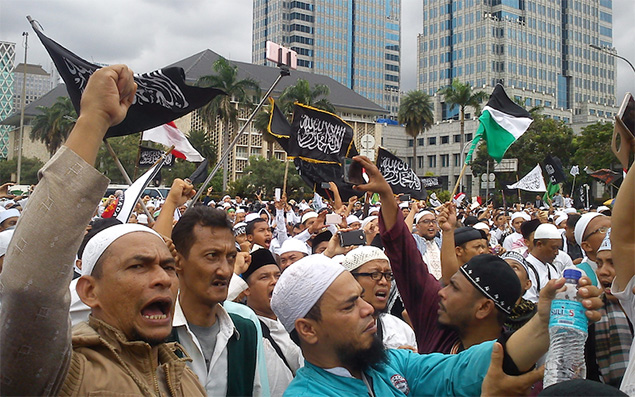Bangladesh, in a twist of irony, is looking to Saudi Arabia to fund a $ 1 billion plan to build hundreds of mosques and religious centres to counter militant Islam that for much of the past decade traced its roots to ultra-conservative strands of the faith promoted by a multi-billion dollar Saudi campaign.
The Bangladeshi plan constitutes the first effort by a Muslim country to enlist the kingdom whose crown prince, Mohammed bin Salman, has vowed to return Saudi Arabia to an undefined form of ‘moderate Islam,’ in reverse engineering.
The plan would attempt to roll back the fallout of Saudi Arabia’s global investment of up to $100 billion over a period of four decades in support of ultra-conservative mosques, religious centres, and groups as an antidote to post-1979 Iranian revolutionary zeal.
Cooperation with Saudi Arabia and various countries, including Malaysia, has focused until now on countering extremism in cooperation with defense and security authorities rather than as a religious initiative.
Saudi religious authorities and Islamic scholars have long issued fatwas or religious opinions condemning political violence and extremism and accused jihadists of deviating from the true path of Islam.
The Saudi campaign, the largest public diplomacy effort in history, was, nevertheless, long abetted by opportunistic governments who played politics with religion as well as widespread discontent fuelled by the failure of governments to deliver public goods and services.
The Bangladeshi plan raises multiple questions, including whether the counter-narrative industry can produce results in the absence of effective government policies that address social, economic and political grievances.
It also begs the question whether change in Saudi Arabia has advanced to a stage in which the kingdom can claim that it has put its ultra-conservative and militant roots truly behind it. The answer to both questions is probably no.
In many ways, Sunni Muslim ultra-conservatism and militancy, violent and non-violent, despite sharing common roots with the kingdom’s long-standing theological thinking and benefitting directly or indirectly from Saudi financial largess, has created a life of its own that no longer looks to the kingdom for guidance and support and is critical of the path on which Prince Mohammed has embarked.
The fallout of the Saudi campaign is evident in Asia not only in the rise of militancy in Bangladesh but also the degree to which concepts of supremacism and intolerance have taken root in countries like Malaysia, Indonesia and Pakistan. Those concepts are often expressed in discrimination, if not persecution of minorities like Shia Muslims and Ahmadis, and draconic anti-blasphemy measures by authorities, militants and vigilantes.
Bangladesh in past years witnessed a series of brutal killings of bloggers and intellectuals whom jihadists accused of atheism.
Moreover, basic freedoms in Bangladesh are being officially and unofficially curtailed in various forms as a result of domestic struggles originally enabled by successful Saudi pressure to amend the country’s secular constitution in 1975 to recognize Islam as its official religion. Saudi Arabia withheld recognition of the new state as well as financial support until the amendment was adopted four years after Bangladeshi independence.
In Indonesia, hard-line Islamic groups, led by the Islamic Defenders Front (FPI), earlier this month filed a blasphemy complaint against politician Sukmawati Sukarnoputri, a daughter of Indonesia’s founding father Sukarno and the younger sister of Megawati Sukarnoputri, who leads President Joko Widodo’s ruling party. The hardliners accuse Ms. Sukarnoputri of reciting a poem that allegedly insults Islam.
The groups last year accused Basuki Tjahaja Purnama aka Ahok, Jakarta’s former Christian governor, of blasphemy and spearheaded mass rallies that led to his ouster and jailing, a ruling that many believed was politicized and unjust.
Pakistan’s draconic anti-blasphemy law has created an environment that has allowed Sunni Muslim ultra-conservatives and powerful political forces to whip up popular emotion in pursuit of political objectives. The environment is symbolized by graffiti in the corridor of a courthouse In Islamabad that demanded that blasphemers be beheaded.
In one instance in December, Qatari preacher Muhammed al-Muraikhi described Jews in a sermon in Doha’s Imam Muhammad ibn Abd al-Wahhab Mosque as “your deceitful, lying, treacherous, fornicating, intransigent enemy” who have “despoiled, corrupted, ruined, and killed, and will not stop.”
No doubt, Saudi Arabia, like Qatar, which much earlier moved away from puritan and literal Sunni Muslim ultra-conservatism, is sincere in its intention to adopt more tolerant and pluralistic worldviews.
Getting from A to B, however, is a lengthy process. The question remains whether the kingdom has progressed to a degree that it can credibly help countries like Bangladesh deal with their demons even before having successfully put its own house in order.
Home » Opinion » Rolling back militancy: Bangladesh looks to Saudi in a twist of irony
Rolling back militancy: Bangladesh looks to Saudi in a twist of irony
| James M. Dorsey

